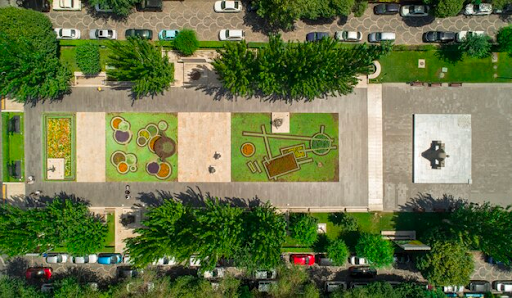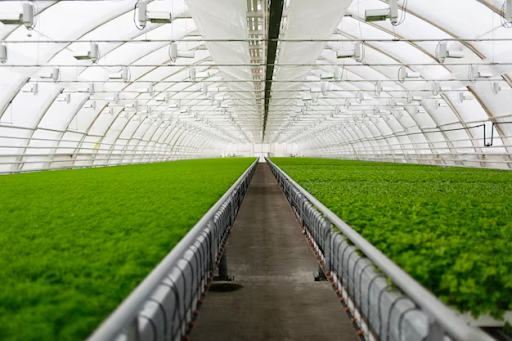Unlocking the Secrets of Exceptional Landscape Design in Orange County, CA
When it comes to landscape design, Orange County, CA, offers a unique canvas of challenges and opportunities. The lush coastal environment, Mediterranean climate, and diverse topography create a distinctive setting that demands thoughtful consideration.
In this article, we delve into the secrets of
exceptional landscape design in Orange County, exploring popular plant choices, sustainable landscaping practices, innovative design techniques, and the statistical impact on property value and environmental sustainability.

The Orange County Landscape: Challenges and Opportunities
Climate and Topography
Orange County's Mediterranean climate, characterized by mild, wet winters and warm, dry summers, influences landscape design choices. The county's diverse topography, ranging from coastal areas to hilly landscapes, adds another layer of complexity. Designers must carefully select plants and materials that thrive in these conditions.
Water Scarcity and Conservation
With water scarcity being a prevalent concern in Southern California, effective water conservation is a key consideration in landscape design. Drought-tolerant plants, efficient irrigation systems, and permeable surfaces are essential elements in creating sustainable and water-efficient landscapes.
Regulations and Restrictions
Orange County has specific regulations and restrictions related to landscaping, such as water-use efficiency ordinances. These guidelines aim to promote water conservation and sustainable practices. Landscape designers must be well-versed in these regulations to ensure compliance while still creating aesthetically pleasing designs.
Popular Plant Choices in Orange County
Drought-Tolerant Plants
Given the water scarcity concerns, drought-tolerant plants are becoming increasingly popular in Orange County. Succulents, such as agaves and aloe vera, and Mediterranean plants like lavender and rosemary, are excellent choices. These plants not only conserve water but also add a unique flair to the landscape.
Native Plants
Incorporating native plants into landscape designs has gained momentum for their adaptability and low maintenance. Examples include California poppies, sagebrush, and oak trees. Native plants contribute to the ecosystem, attracting local wildlife and creating a harmonious balance within the environment.
Fruit-Bearing Trees
Citrus trees, such as orange, lemon, and lime, thrive in Orange County's climate and are a popular choice for both aesthetic and practical reasons. Fruit-bearing trees not only add visual interest but also provide homeowners with fresh, homegrown produce.
Sustainable Landscaping Practices
Efficient Irrigation Systems
Smart irrigation systems with weather sensors and drip irrigation technology play a crucial role in sustainable landscaping. These systems ensure that plants receive the right amount of water, minimizing waste and promoting water conservation.

Permeable Surfaces
To address water runoff and support groundwater recharge, landscape designers are increasingly incorporating permeable surfaces. Pervious pavers, gravel pathways, and porous concrete allow rainwater to penetrate the soil, preventing erosion and reducing the burden on stormwater drainage systems.
Composting and Mulching
Composting and mulching are sustainable practices that enhance soil fertility, reduce water evaporation, and suppress weed growth. By incorporating organic matter back into the soil, landscape designers contribute to the overall health of the landscape.
Innovative Design Techniques
Outdoor Living Spaces
The trend towards creating outdoor living spaces has gained momentum in Orange County. Designers are integrating elements like outdoor kitchens, fire pits, and comfortable seating areas to extend the usable space of a property. This not only enhances the lifestyle of the homeowners but also adds value to the property.
Vertical Gardening
In response to limited space, vertical gardening has emerged as an innovative design technique. Utilizing vertical surfaces, such as walls or trellises, for plant installations maximizes greenery in compact spaces. Vertical gardens not only look striking but also contribute to air purification.
Smart Lighting
Well-designed outdoor lighting can transform a landscape, providing ambiance and security. Smart lighting systems, with programmable features and energy-efficient technologies, are becoming popular. These systems enhance the visual appeal of the landscape while minimizing energy consumption.
Statistical Impact on Property Value and Environmental Sustainability
Property Value Enhancement
Investing in quality landscape design can significantly impact property value. According to studies, well-designed landscapes can increase property value by up to 20%. Curb appeal, outdoor living spaces, and sustainable features are key contributors to this value appreciation.
Environmental Sustainability
Beyond aesthetics and property value, well-designed landscapes contribute to environmental sustainability. The use of native plants, efficient irrigation, and sustainable practices helps conserve water, reduce energy consumption, and support local ecosystems. These environmentally conscious choices align with the growing demand for eco-friendly living.
CAZ Designs: Your Guide to Exceptional Landscape Design
As you embark on your journey to unlock the secrets of exceptional landscape design in Orange County, consider partnering with experts who understand the intricacies of the local landscape. At CAZ Designs, we specialize in creating stunning and sustainable landscapes tailored to the unique challenges and opportunities presented by Orange County.
Expert Guidance and Tailored Solutions
Our team of experienced landscape designers at CAZ Designs is committed to providing expert guidance and tailored solutions. Whether you're looking to transform your outdoor space into a haven of tranquility, enhance your property's curb appeal, or maximize sustainability, we have the knowledge and creativity to bring your vision to life.
Visit CAZ Designs for Your Landscape Transformation
Ready to elevate your outdoor space to new heights? Explore our portfolio, discover our services, and envision the possibilities for your landscape at CAZ Designs. Let us be your trusted partner in unlocking the secrets of exceptional landscape design in Orange County.
In conclusion, Orange County's landscape presents a canvas of unique challenges and opportunities. By embracing drought-tolerant plants, sustainable practices, and innovative design techniques, homeowners can not only enhance their property's value but also contribute to environmental sustainability. As you embark on your landscape design journey, consider the insights shared here and consult with professionals like CAZ Designs for a transformative experience.



